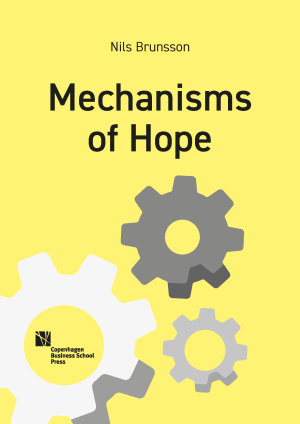Western culture is a culture of hope. There is a long tradition of hoping not only for mundane, reasonably realistic events; people tend also to hope for the eventual realization of grand ideals and lofty principles. This book explains how great hopes can be kept afloat in the face of discouraging experiences - why people often fail to learn from experience, but continue to believe in unrealized and unrealistic ideals.
How does the dream of the perfectly rational organization survive in a world which has little room for it? In this innovative and inspiring book Nils Brunsson analyses how managers and other organization members can maintain their hope for the rational organization, even though they and others have failed to attain it. He relies on several empirical studies of organizational reforms which were based on this ideal.
Hope gives rise to stability. The has been a long tradition in organization theory of questioning the realism and usefulness of the rational ideal, but hope keeps this ideal alive. By applying various "mechanisms of hope", managers and others can continue to hope for the rational organization and continue their attempts at reform.



